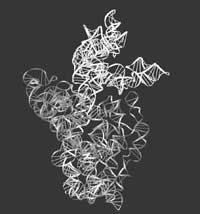Cancer messenger RNA defects
Neurofibromatosis type 1 is a hereditary disease that affects one in 4,000 people. The disease is explained by the insufficient production of a protein (neurofibromine) that controls cell growth. Then, around the nerves of the patient, usually benign but sometimes malignant tumors are generated.

Researchers at the University of Washington, during 34 patients investigating the cause of neurofibromine shortages, saw altered copies of several protein-producing messenger RNAs. Apparently, the modification of a defective RNA messenger nucleotide produces a stop signal that prevents the production of neurofibromine. In addition, according to researchers, the transformation of messenger RNA is due to the failure of the apobec-1 enzyme, which is normally found in the intestine.
Although until now, the main cause of cancer was considered to be DNA defects, from now on, messenger RNA should pay more attention to the research of certain types of cancer.





